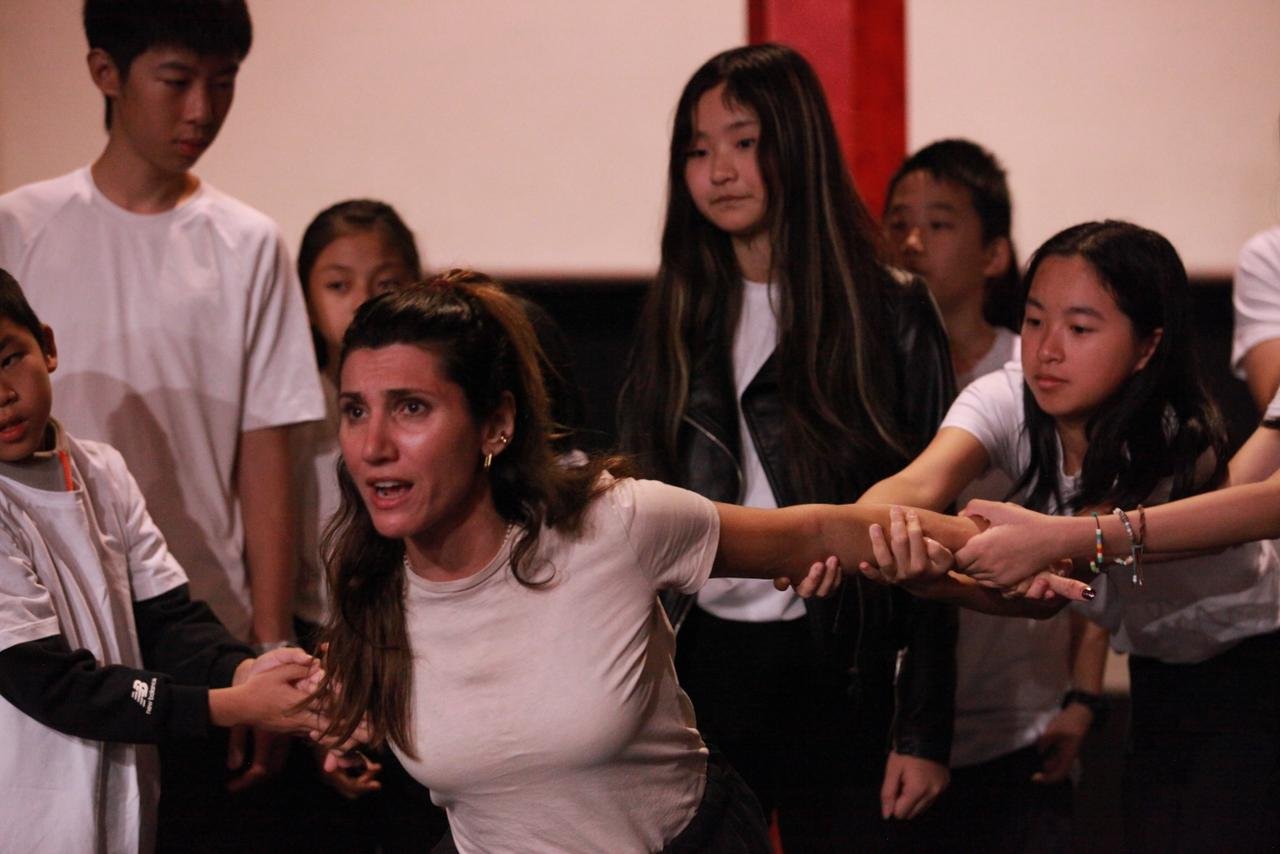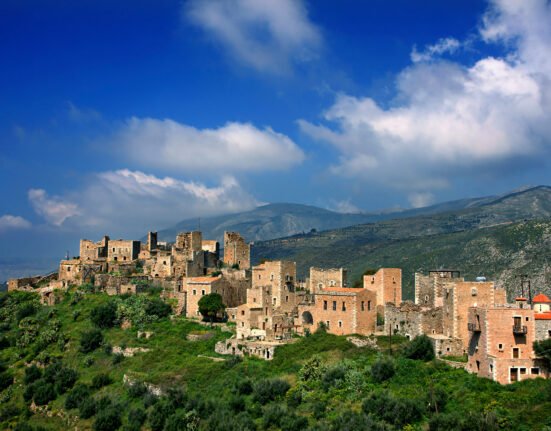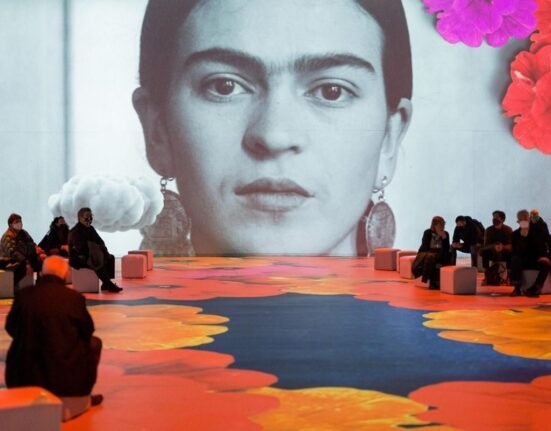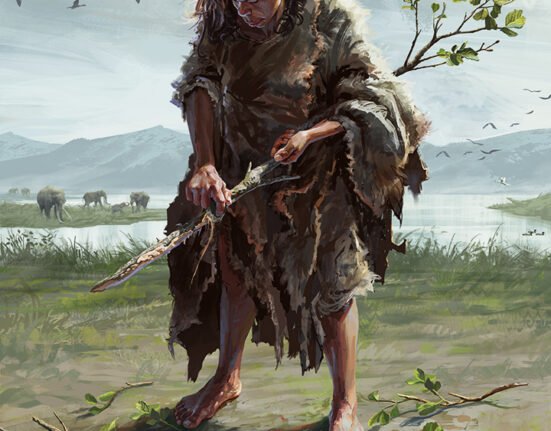The Sino-Hellenic Performing Arts Alliance (SHPAA) is set to premiere their rendition of ELECTRA, the timeless Greek tragedy, reimagined by a passionate cast of Chinese youth living in Greece. The multi-talented Marianthi Kyriou, as director, and Winnie Liu, as producer, bring their unique skills to this production, seeking to breathe new life into the classic Greek tragedy and showcase a unique cultural exchange.
At the final rehearsals, Xpat.gr had the chance to peek behind the scenes and glimpse the creative process, challenges, and inspirations shaping this unique performance. The director, producer, and cast shared their thoughts on what makes this version of ELECTRA so distinctive. Here is what they had to say:
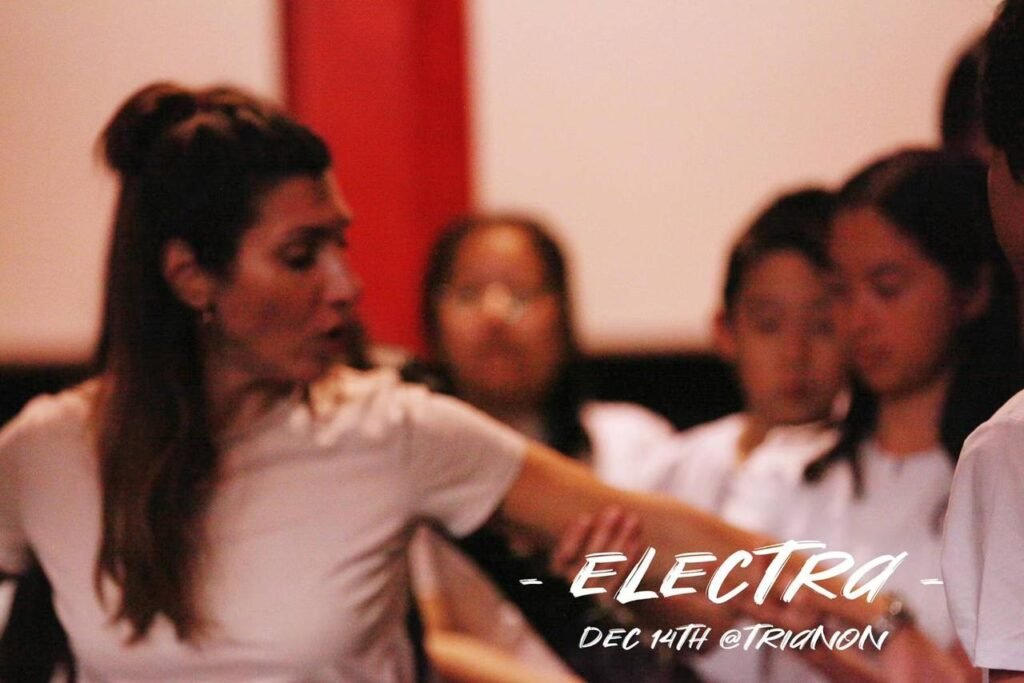
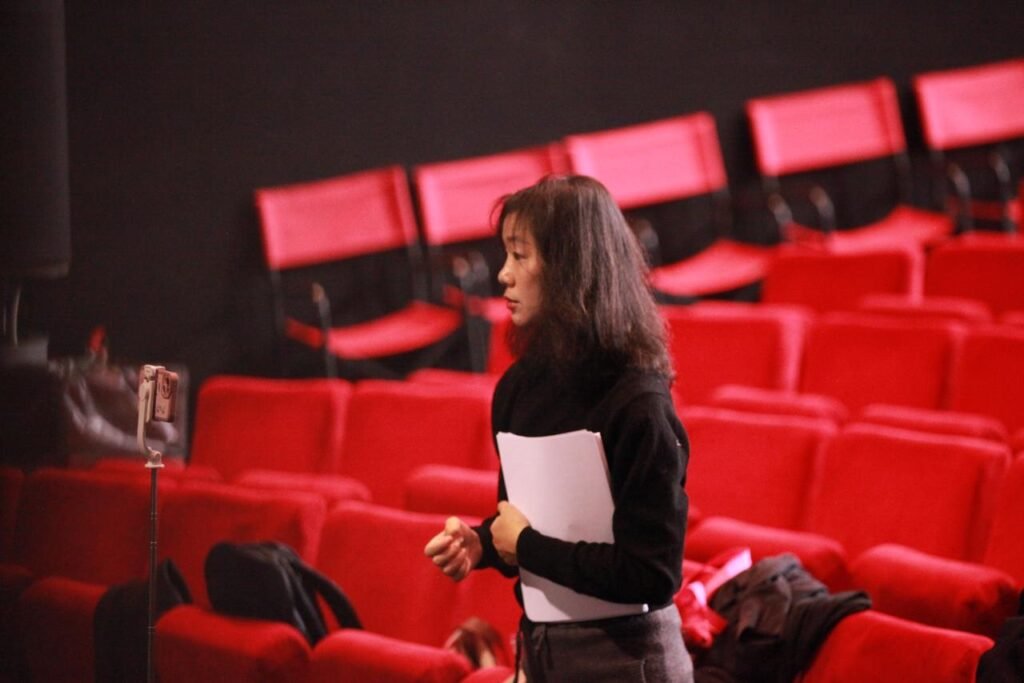
Q&A with Director Marianthi Kyriou: Bridging Cultures in ELECTRA
How did you approach directing ELECTRA with a cast of Chinese actors living in Greece? Did their background offer unique insights into this Greek tragedy?
Directing these young Chinese actors has been an extremely interesting experience for me! They possess an innate sense of ancient Greek drama without even knowing it—a gift from their Chinese background that makes them unique. They carry physical and emotional codes that provide me with new perspectives in direction! Working with them has been invaluable.
Since the play is performed in English, how do you ensure that the emotional depth of this Greek classic resonates with audiences?
Emotional depth has nothing to do with language! Ancient Greek drama is indeed classic, and classics have their own depth, touching people all over the world. Pain, revenge, fear, sorrow, love, and grief are emotional states that can be expressed in any language. The only challenge I faced was the rhythm of the language itself. Greek is a strong language, as is Chinese! Therefore, we gave a strong rhythm to the English language as well.
In your view, are there any shared themes or values between Greek and Chinese traditions that helped bring this production to life?
Yes, absolutely! Greek and Chinese cultures share rich histories and traditions. It feels like we understand each other, where geographical distance disappears. We both have traditional music, theater, food, clothing, and common character traits—overprotectiveness, a great sense of humor, respect for history, and a passionate, expressive nature. There is excellent communication taking place between us!
Working with a Chinese cast based in Greece must be fascinating. How has their experience living here shaped this production?
It is fascinating! Their experiences enrich my direction in new ways. They are learning Greek, exploring Greek traditions like food and music, and visiting museums while also maintaining their Chinese customs. They are truly citizens of the world—the new format of China-Greece. This cultural exchange is incredibly interesting in the arts!
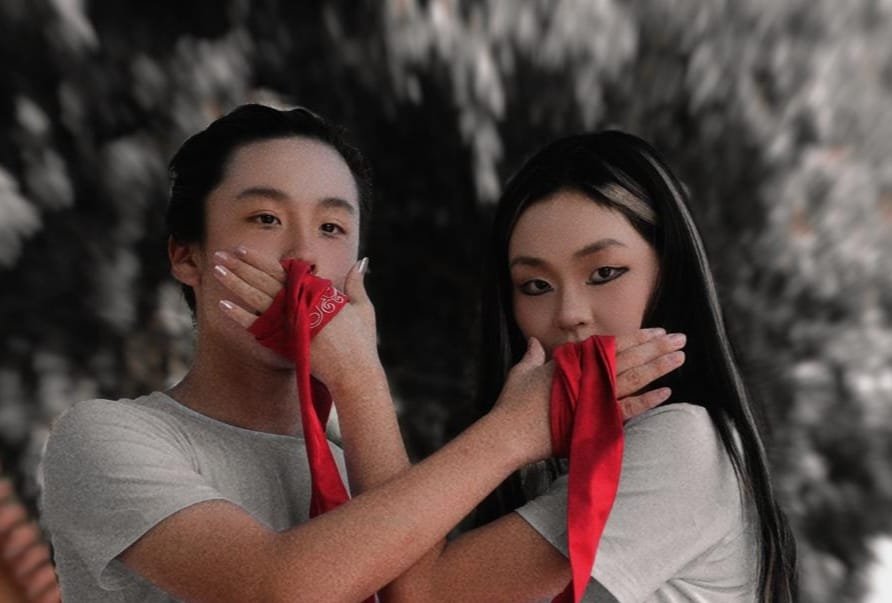
Photo Credit: SHPAA
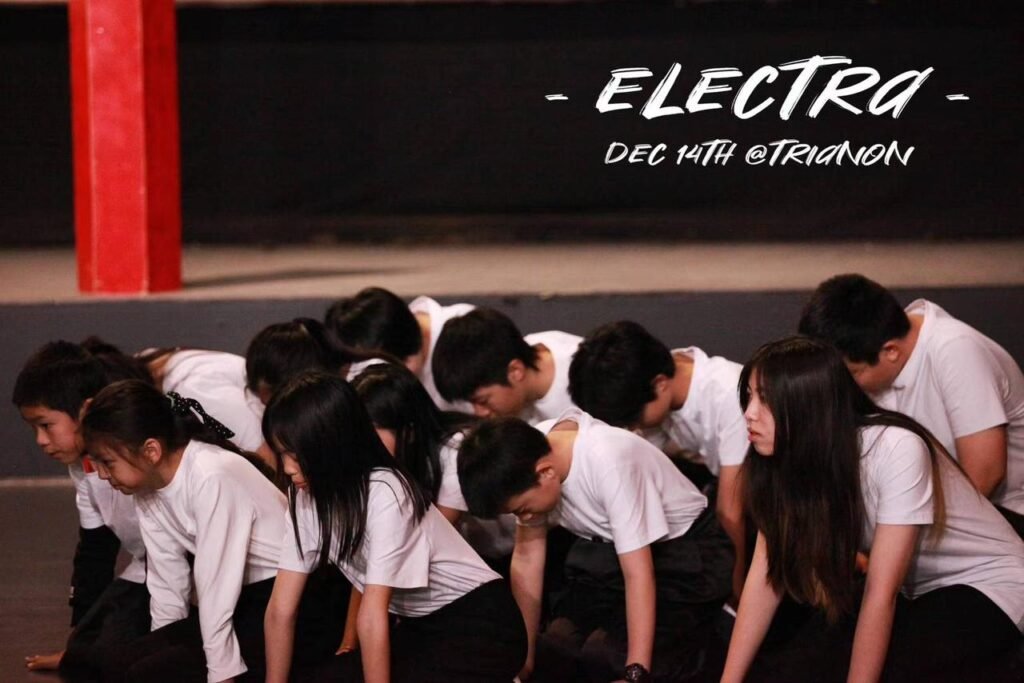
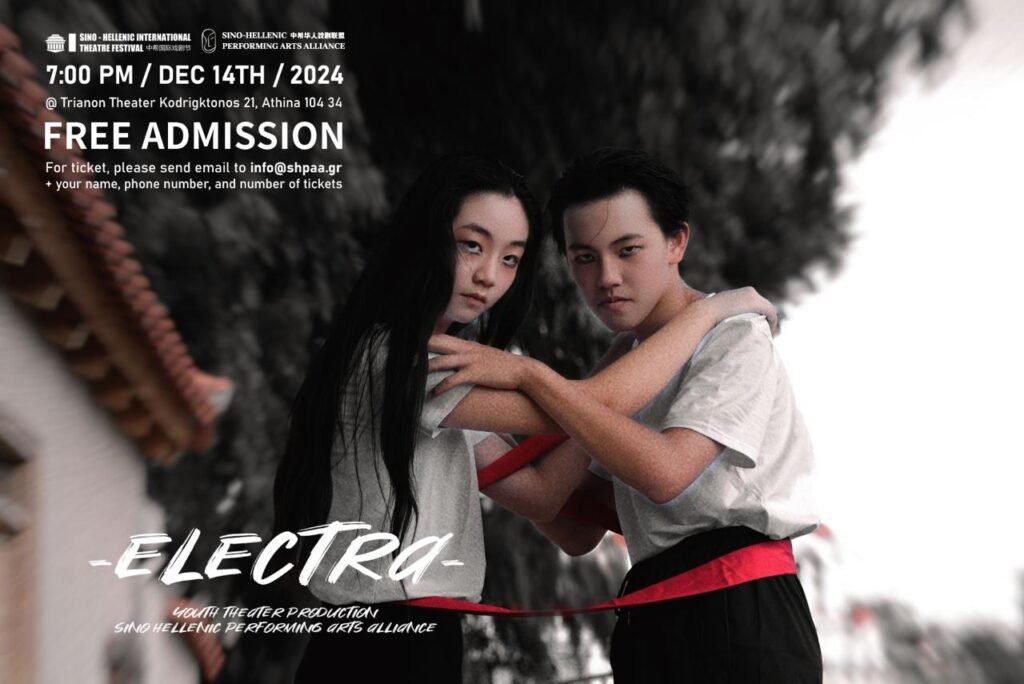
Photo Credit: SHPAA
Q&A with Producer Winnie Liu: Shaping ELECTRA through Cultural Fusion
After starring in The Legend of the White Snake·Remix, how does it feel to take on the role of producer for ELECTRA?
Taking on the role of producer for ELECTRA after starring in The Legend of the White Snake·Remix brings a whole new set of challenges and joys. It’s like stepping into a different yet equally fascinating realm where I can have more control over the creative aspects and see the story unfold from a broader perspective. There’s a sense of responsibility to bring out the essence of the story while adding my own touch, which is both exciting and fulfilling.
In The Legend of the White Snake·Remix, a Chinese myth was blended with Greek elements. This time, with ELECTRA being a Greek tragedy, can we expect any creative additions that reflect Chinese culture?
In The Legend of the White Snake·Remix, Greek elements were integrated into a traditional Chinese myth, fostering a rich cultural exchange. Initially, there was consideration to incorporate similar creative additions in the adaptation of Electra. However, after careful deliberation, the decision was made to preserve the authenticity of the original Greek style while allowing a group of Chinese teenagers to perform it in English. This combination lends the production a unique flavor, making it stand out and beautifully showcasing the power of cultural integration.
While both The Legend of the White Snake·Remix and Electra explore themes of love, loyalty, and moral dilemmas, their narratives remain distinct. In The Legend of the White Snake·Remix, Bai Suzhen fights for forbidden love, whereas Electra and Orestes seek vengeance for their father’s death by confronting their mother and Aegisthus. Both stories also involve supernatural elements and difficult choices driven by personal desires. However, their endings diverge significantly: The Legend of the White Snake·Remix concludes with themes of forgiveness and love, while Electra moves from revenge to a quest for justice.
How do you think the play will resonate with both Greek and international audiences?
First of all, this is a traditional ancient Greek drama that is well-known to Greeks. It is easy for Greek audiences to understand and feel the essence of the story. Secondly, to facilitate international audiences in understanding the plot, we carefully designed electronic subtitles in Greek, English, and Chinese. While enjoying the drama, the audience can follow the plot through electronic devices. The existence of three different subtitles will not affect the audience’s intuitive understanding of the performers.
Has living in Greece influenced your vision for this production or how you approach cultural storytelling?
Living in Greece has definitely influenced my vision for this production and how I approach cultural storytelling. I’ve been immersed in the local culture, gaining a deeper understanding of the roots and nuances of Greek tragedies. This experience has inspired me to respect the original material while also thinking about how to bridge different cultures, telling the story in a way that can be appreciated by a wider audience and showcasing the beauty of cross-cultural exchanges.
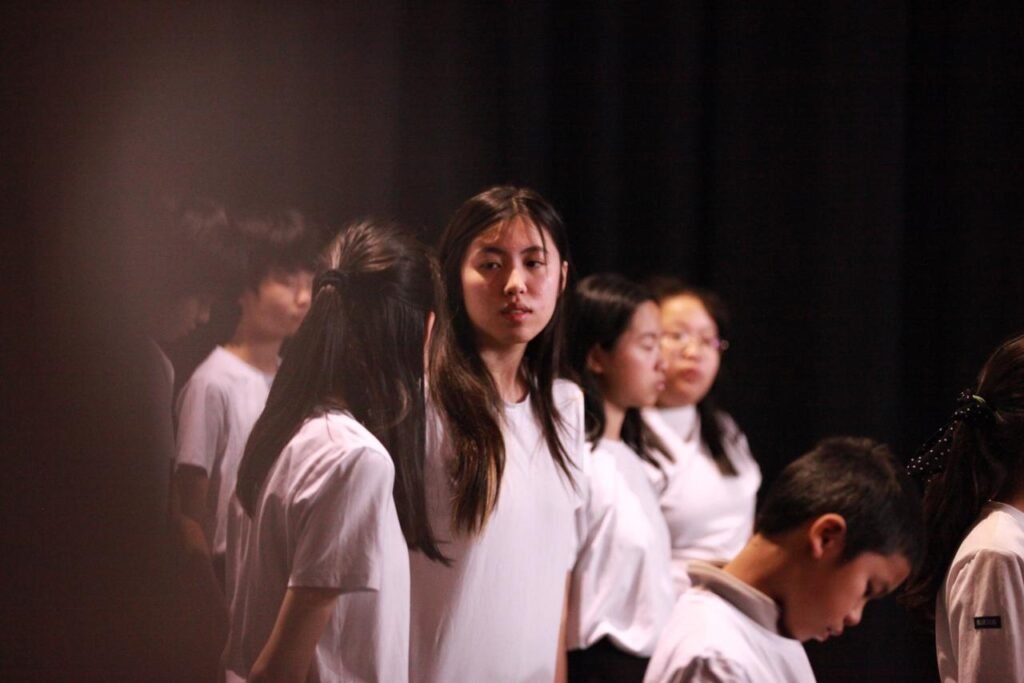
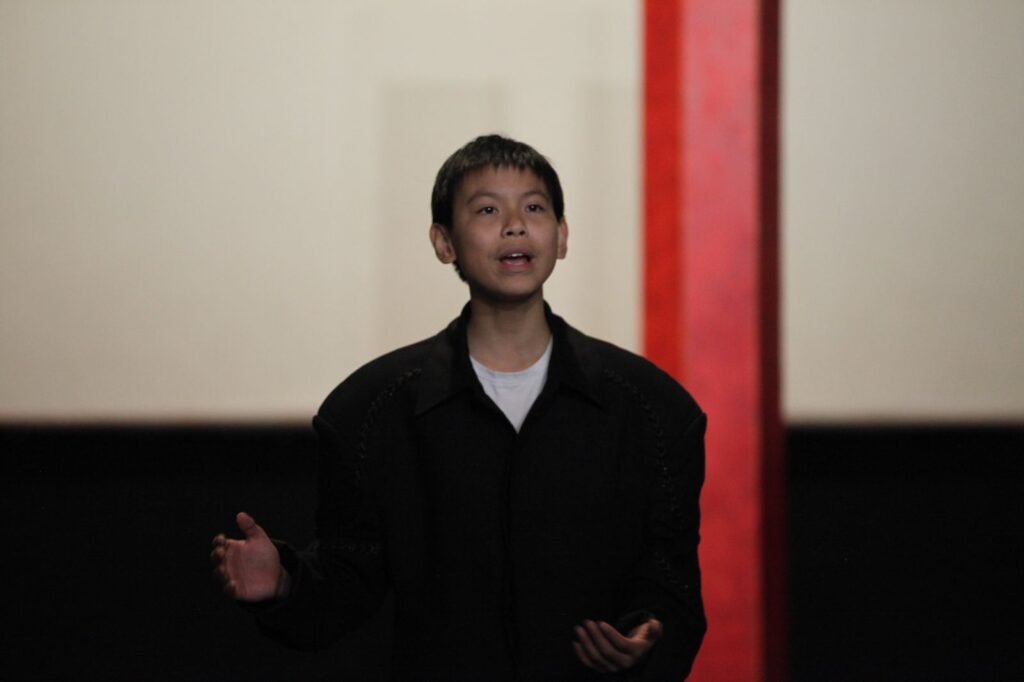
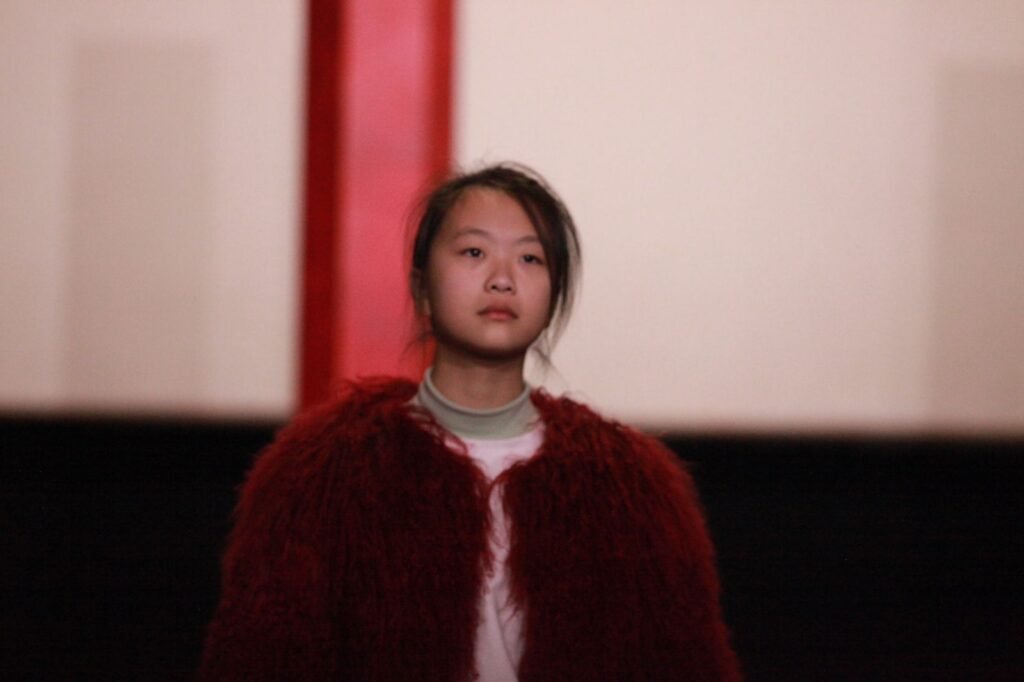
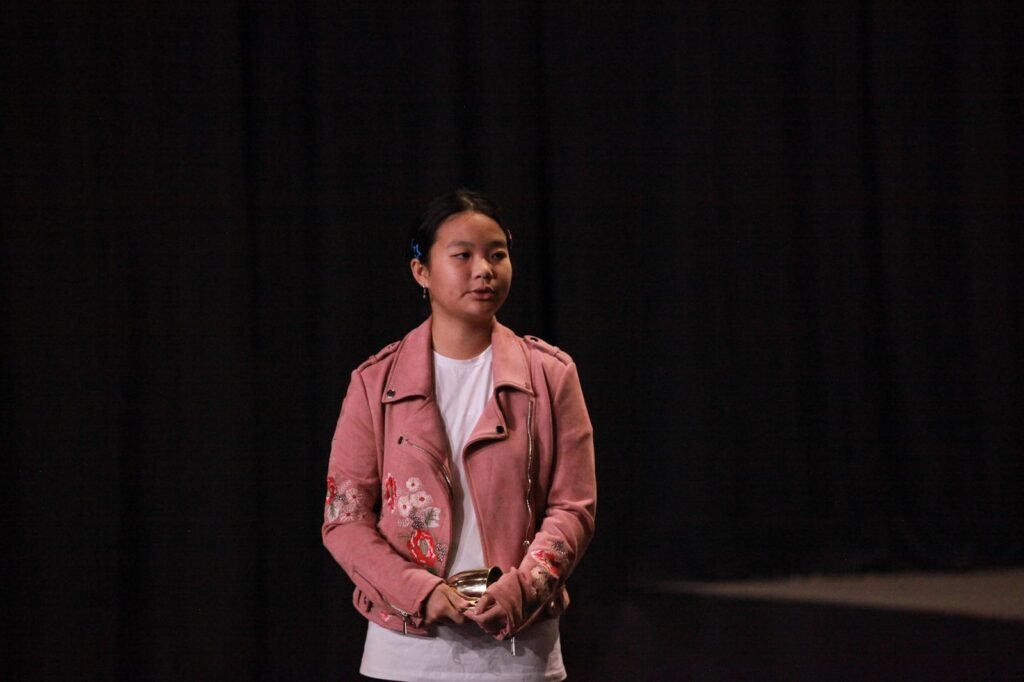
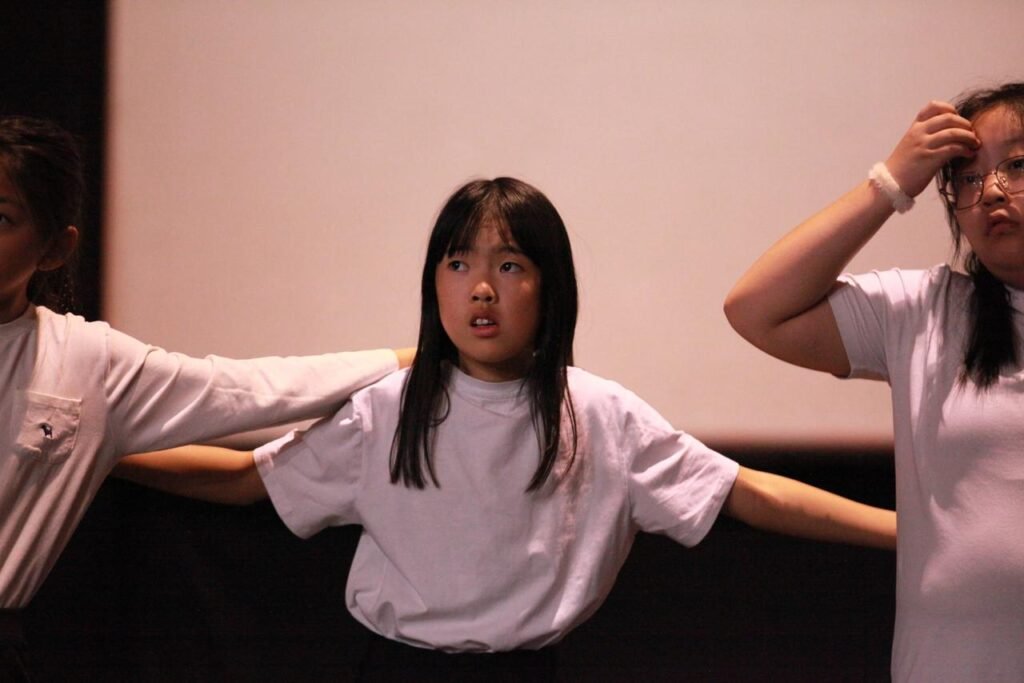
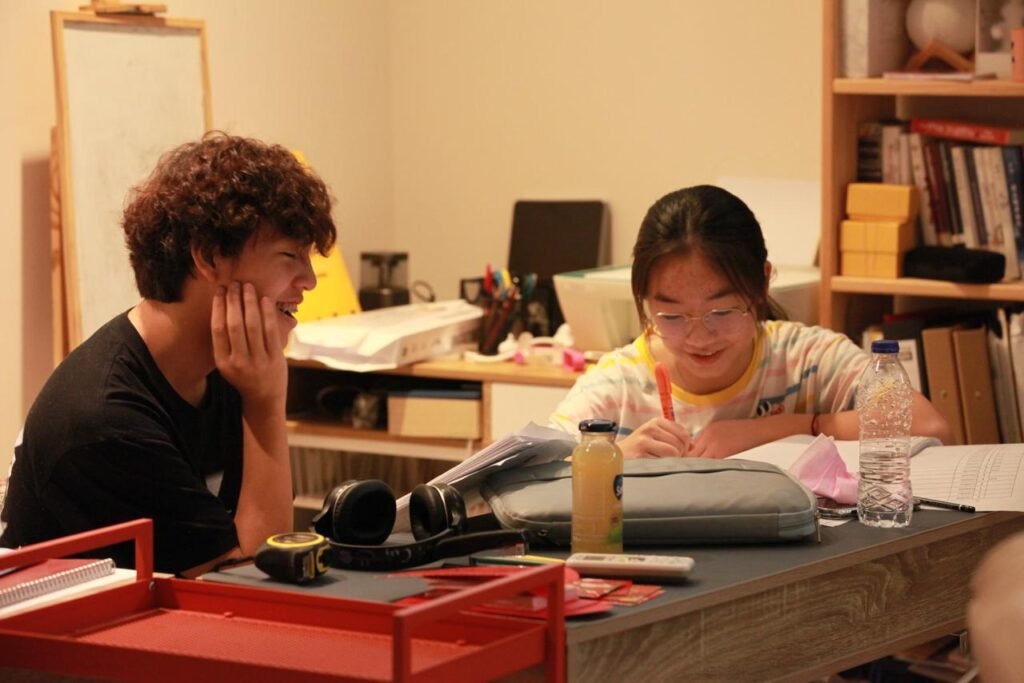

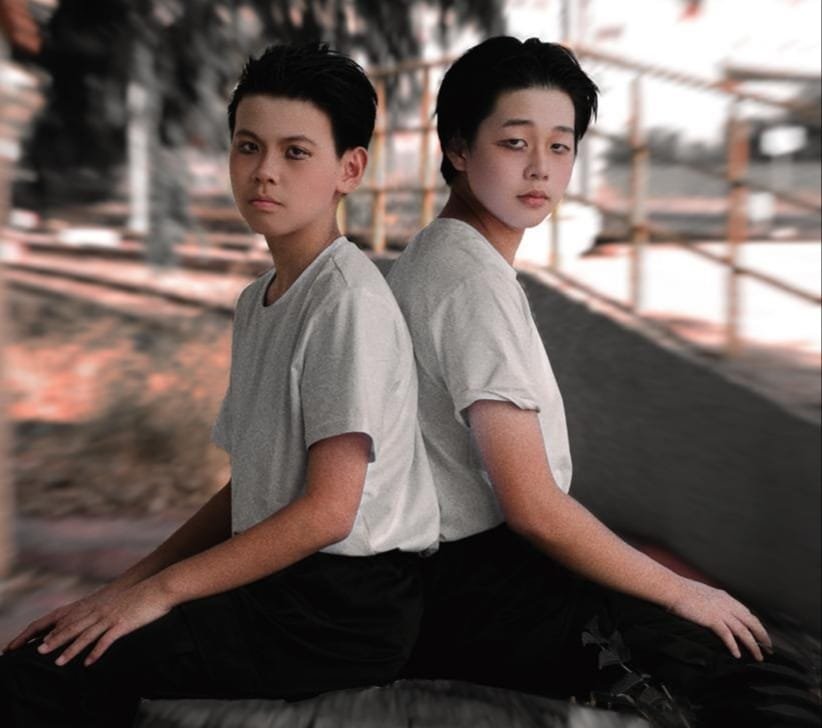
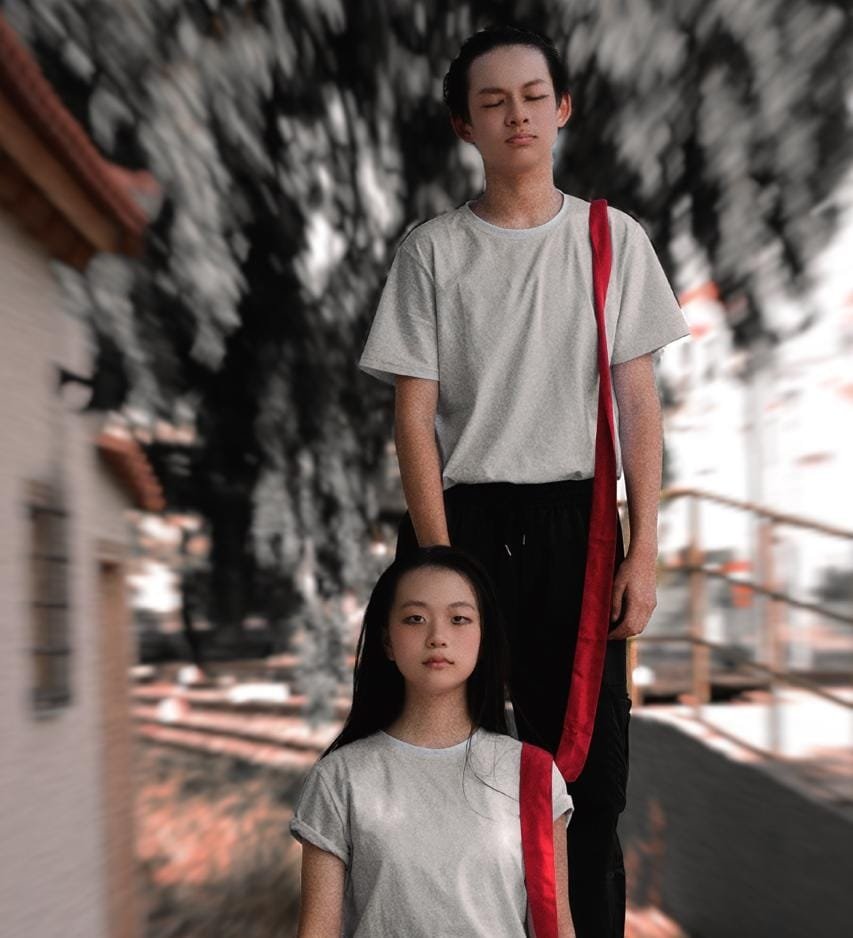
Q&A with the Cast: Personal Insights on ELECTRA & Bridging Traditions
Living in Greece must give you a unique perspective. How has it influenced the way you connect with your roles in ELECTRA?
Chelsea Wang: “I have been living in Athens for two years. Studying abroad is a completely new experience for me. I am playing the role of Electra in ELECTRA . I love how passionate she is during difficult times. I have absorbed a lot from her resilient spirit and determination. Electra has made me a tough cookie.”
Alven Mo: “Living in Greece gives an interesting perspective on my role, Orestes, in ELECTRA , because Greece is the birthplace of ancient tragedies. It influences my portrayal of such a powerful character, who struggles with duty, morality, and fate. I feel fortunate to be acting as Orestes in this play.”
Susie Gu: “I feel like acting in ELECTRA is a great way to interact with other cultures and their stories. Acting in English is easier for me since I am more proficient in English than in Greek. The difficulty for me is really sinking into my character. Like with Electra and her brother, my brother and I sometimes fight, but in the end, we always reconcile. The most surprising part for me is that I am literally getting interviewed! Personally, I think this is a wonderful way to learn about and enjoy the cultures of different countries since I would not have known the story of ELECTRA if I hadn’t come here. I really want the audience to take away the message that sometimes you need to follow your own path and not let others stop you. Now that I am living in Greece, I feel like my drama and theater experience has been greatly enriched. I love putting myself into someone else’s shoes.”
Rain Zhang: “Before I came to Greece, I viewed theater merely as a venue for shows. After experiencing Greek theater, I realized that performances can take many forms, such as comedy and tragedy.”
What does it mean to you as a Chinese actor to bring a Greek tragedy like ELECTRA to life?
Leona Zhu: “As an amateur Chinese actress, bringing a Greek tragedy like ELECTRA to life is an extraordinary and inspiring experience. It bridges the profound cultural heritage of the ancient Greeks with my own Chinese background. It challenges me to explore universal themes such as justice, vengeance, and destiny—concepts that resonate across cultures and eras. This opportunity allows me to interpret and appreciate these themes from my own perspective. The deep emotional intensity of ELECTRA and the moral questions it raises transcend cultural boundaries, helping us create connections between ancient civilizations. It reminds me that although we come from different parts of the world, our human nature and experiences are universally shared.”
Karl Cui: “Performing the Greek tragedy ELECTRA provides a great opportunity for me to connect with emotions and struggles that many people face, such as loyalty, justice, dealing with grief, and resolving family conflicts. Though this story originates from ancient Greece, its core feelings—pain, anger, hate, and the desire for fairness—are universal issues we encounter in daily life, regardless of where we are from. By infusing my own life experiences and cultural background into this role, I feel like I am the Chinese Orestes. It’s exciting to demonstrate that the emotions at the heart of ELECTRA resonate with us all, no matter our origins.”
Was it challenging to perform such an emotionally intense play in English? How did you prepare for it?
Niki Bai: “It is very challenging for me to perform an emotionally intense play, given the significant differences between my personality and that of my role, along with my acting skills. I prepared for this play by memorizing my lines, understanding the character’s nature, and collaborating with my peers and teachers.”
Are there aspects of the play’s themes—like family, loyalty, or justice—that you feel resonate with your own cultural background?
Alven Mo: “Yes, for me, the themes of loyalty in ELECTRA relate closely to Chinese culture. In Chinese society, family is paramount, and children are expected to be loyal, respectful, and caring towards their parents, just as Electra and Orestes seek to avenge their father’s death to honor him.”
Iris Wang: “This is my first time in a drama production, and ELECTRA has been a fantastic practice for me. I think the most challenging part is the movement; every step needs to be executed perfectly to convey the right emotions or use the props correctly. It makes me really feel like I am part of the story (though it’s a bit difficult). Each line has a different meaning, so I must think hard about it. Participating in this play and putting in the effort feels both tiring and incredibly fun and exciting!”
What’s been the most rewarding or surprising part of working on this production?
Yolanda Zhang: “I found ELECTRA to be a challenging play when I first saw the script because of the long and difficult lines. What surprised me most is that we could finish this complex play and present it at the theater. Additionally, the role of the chorus is new to me; it has definitely been harder than I thought to understand what the chorus does and how the members act together on stage as one.”
ELECTRA is rooted in Greek tradition but brought to life by a Chinese cast in Greece. What does this blending of cultures mean to you personally?
Gary Hei: “This blending of cultures signifies the friendship between China and Greece. Performing this tragedy in Greece could strengthen the relationship between our two countries.”
What do you hope audiences—especially those from both Chinese and Greek backgrounds—take away from this unique rendition of ELECTRA?
Polly Xuan: “I have learned a lot about the tragedy presented in this play. We can see many cultural traditions shared between China and Greece, such as loyalty to family and the emphasis on children’s education. I hope that audiences from both China and Greece can appreciate these beautiful traditional values. Perhaps in the future, this can further enhance the friendly relations between our countries.”
As the cast of ELECTRA prepares to take the stage, we invite you to experience the power of theater, which reminds us of the ties that bind us all. Watch this group of Chinese youth reenact the beauty of this timeless play and learn from the stories we share—regardless of our backgrounds.
Performance Details
Title: ELECTRA
Venue: Trianon Theater, Kodrigktonos 21, Athens, 104 34, Greece
Languages: Performed in English with subtitles in Greek, English, and Chinese
Date
- Saturday, December 14, at 7:00 PM
Tickets
FREE ADMISSION
To secure your free tickets, please email info@shpaa.gr with your name, phone number, and the number of tickets you would like to reserve, or call.
Organizers
Sino-Hellenic Performing Arts Alliance, Sino-Hellenic International Theatre Festival
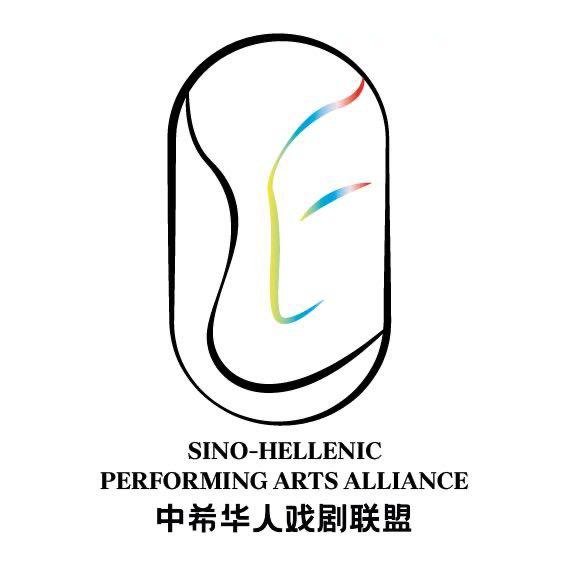

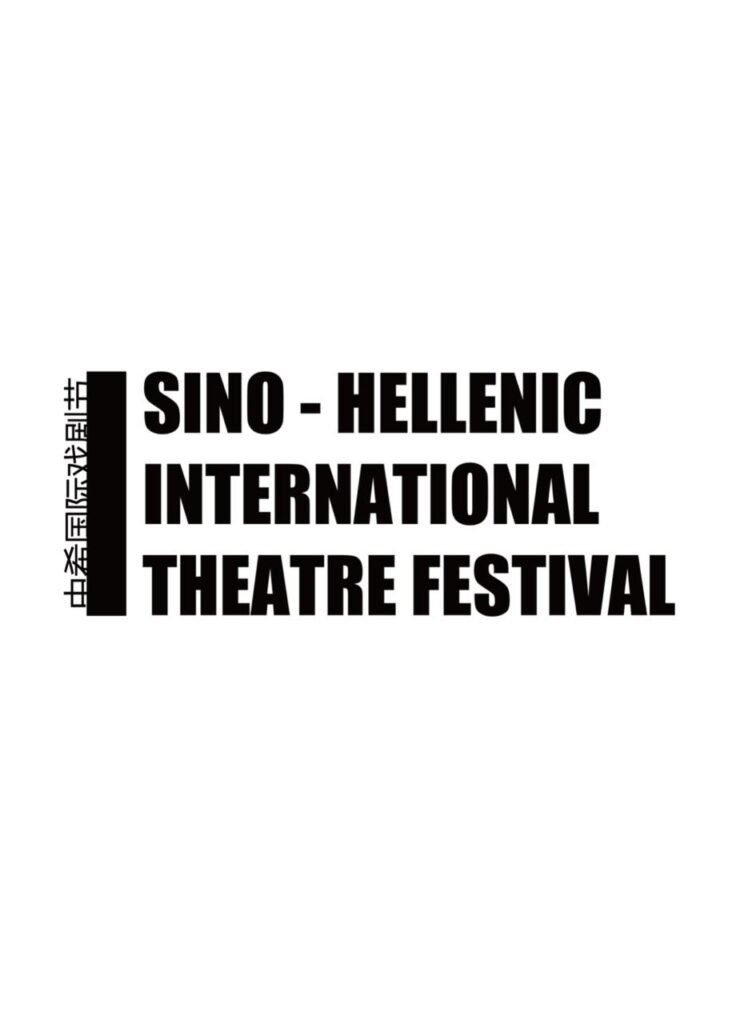
Creative Team
Director: Marianthi Kyriou
Producer: Winnie Liu
Cast:
| Role | Performer | School & Grade |
| Elder | Rain Zhang | American Community Schools of Athens (ACS Athens), G9 |
| Elder | Gary Hei | American Community Schools of Athens (ACS Athens), G8 |
| Orestes | Alven Mo | American Community Schools of Athens (ACS Athens), G8 |
| Orestes | Karl Cui | American Community Schools of Athens (ACS Athens), G9 |
| Electra | Chelsea Wang | American Community Schools of Athens (ACS Athens), G8 |
| Electra | Leona Zhu | St. Lawrence College, G9 |
| Chrysothemis | Niki Bai | American Community Schools of Athens (ACS Athens), G8 |
| Clytemnestra | Polly Xuan | American Community Schools of Athens (ACS Athens), G7 |
| Aegisthus | Vincent Wen | American Community Schools of Athens (ACS Athens), G9 |
| Chorus | Nefeli Fu | Lampiri Schools, G9 |
| Yizhou Wang | 8th Elementary School, G6 | |
| Yolanda Zhang | American Community Schools of Athens (ACS Athens), G9 | |
| Nanshan Li | American Community Schools of Athens (ACS Athens), G8 | |
| Jiahuo Chen | American Community Schools of Athens (ACS Athens), G8 | |
| Iris Wang | Byron College, G6 | |
| Susie Gu | Campion School, G6 | |
| Lucas Yang | Yannopoulos School, G7 | |
| Sophie Zhang | International Metropolitan School (IMS), G7 | |
| Andy Wang | American Community Schools of Athens (ACS Athens), G6 | |
| Money Sun | American Community Schools of Athens (ACS Athens), G4 | |
| Ryan Chen | St. Lawrence College, G6 |


